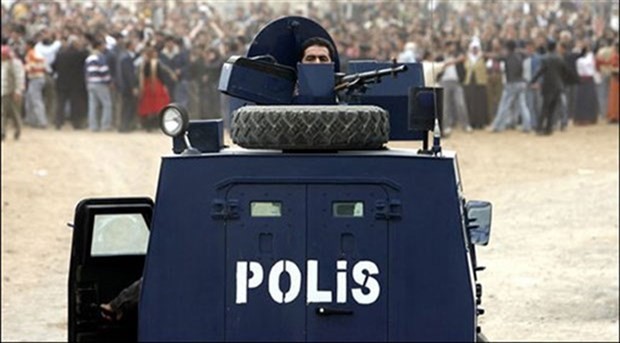Decrees passed under state of emergency: deviation from rule of law

Ömer Faruk Eminağaoğlu
Guest Writer
If the aim of the government is to bring to justice those involved in the coup attempt, this must be done on legal grounds. So, what can be and cannot be done through decree laws passed under OHAL (state of emergency)? The government can make decisions through decrees only in a way that cannot deviate from the actual purpose of the state of emergency. There should not be any amendments made on standing laws through these statutory decrees because these decrees will remain as laws even after the state of emergency is lifted.
According to the 89th and 90th articles of the Counter Terrorism Act, suspension or termination of the activities of legal entities and organizations can be implemented only through a court decision, even during a state of emergency. An approach that does not follow along with this principle would cause not only legal entities but also real persons to be punished automatically through decrees without interrogations, which simply stands on the same line with a summary execution.
Just as issuing extrajudicial measures on real persons through decrees passed under state of emergency cannot be excepted, these kinds of decrees can also not be issued over legal entities. Decrees passed under state of emergency cannot be covering all kinds of fields in a boundless nature. The actual purpose and boundaries of the state of emergency must be paid regard to.
According to the Constitutional amendments of 1991 and 1992, the Constitutional Court cannot be referred to in regards to the decree laws passed under state of emergency. This law states that if the regulations that are being made through state of emergency decrees are ‘within the boundaries of the purpose’, then, this law can be applied and there is no need for a further judicial remedy.
However, the Constitutional Court had previously ordered that it would not simply reject any judicial remedy just because a lawsuit was related to a decree passed under state of emergency bur rather would examine the content of the case to determine whether the boundaries of state of emergency had been breached or not.
In a state of emergency, it is possible to take precautions not aligned with the Constitution and European Convention on Human Rights. If referred to the European Convention, such steps can be taken both according to the Constitution and the 15th article of the ECHR. However, this can not be done arbitrarily; both the Constitution and ECHR must be obeyed even when certain precautions are being taken.
Carrying out operations and passing decrees under state of emergency without reference to any laws simply means that the process is handles illegally. And, avoiding rule of law means that this process would eventually deviate from its original purpose, lose effectiveness, and cause in unwanted results.
Justice can be served in an incidence of attack against the state or an attempt of coup only through rule of law. Regardless of the intensity of the coup attempt, laws can not be put aside. However, it is now seen that regulations are being made under state of emergency in such a way that once this emergency state is lifted, the laws made under this state will remain in force. And, this actually means for the state of emergency to remain in force even after it is officially lifted.
For example, it is been ordered through a new decree that some prospective judges are being appointed in place of those suspended without any consideration given to their background or the duration of their candidacy. These newly appointed judges would bring about further complications because of their competency level; and, furthermore, since their appointment will have been issued through decrees, they will keep their positions permanently. This is seriously problematic. Shutting down YARSAV through a decree under state of emergency and basing the decision on operations against FETÖ is an act that does indeed breach the boundaries of the state of emergency. When we look at the recent decree (667), there are too many similar examples. In order for this process not to be based on illegal grounds, this current situation must be appealed to the Constitutional Court.
About the writer: Ömer Faruk Eminağaoğlu is the founding president of YARSAV (Association of Judges and Prosecutors), which has recently been closed down through a decree passed under state of emergency in relation to operations on FETÖ.
Source: https://www.birgun.net/haber-detay/olaganustu-khk-lari-ile-neler-yapilabilir-neler-yapilamaz-121857.html




